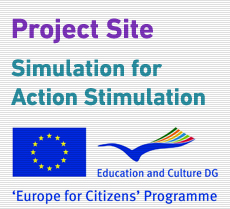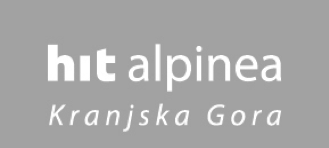Evaluation of the event now available online
Here it is! The evaluation of our event by the participants. As it seems we had great fun together and let's repeat it next year.
Read it here.
European youth discusses political participation, digital society and sustainable development issues
On Tuesday, 3 July 2012, Za in Proti – Zavod za kulturo dialoga organized a round table discussion entitled ‘The Importance of Youth Participation for the New Definition of the Common Good’ Kranjska Gora, Slovenia. The discussion represented an integral part of the ‘Simulation for Action Stimulation’ project that is being carried out in partnership with like-minded civil society organizations from six other countries, namely, Croatia, the Czech Republic, Estonia, Germany, Romania and Slovakia. The umbrella topics of the discussion were the contentious issue of the so-called ACTA agreement and the future prospects of sustainable development and green taxation in the European Union (EU).
Panellists joining us in the discussion were Mr. Simon Delakorda (director of the Institute for Electronic Participation), Mr. Domen Savič and Ms. Barbara Kvas (both representatives of the E-Democracy internet portal), and Ms. Nina Šoštarič (member of the TRS movement for sustainable development). Moreover, Ms. Mojca Kleva, a Slovenian member of the Group of the Progressive Alliance of Socialists & Democrats in the European Parliament joined our round table via Skype conference call. After the initial address of Ms. Stella Biondi, a representative of the European Commission, MEP Kleva pointed out that the discussion could not have come at a better time since the European Parliament was just about to begin its session in Strasbourg in order to discuss and vote on the issue of ACTA in the following two days.
When discussing this very issue, all panellists stood firmly in the opposition to the agreement. The crucial problem with the process of adopting ACTA, as explained by MEP Kleva, was the lack of transparency and involvement of civil society in the drafting of the proposed legislation. At the same time she emphasized that ACTA demonstrated how citizens could influence the work of the European Parliament as they have been sending thousands of emails to their MEPs to convince them to reject the agreement. Mr. Delakorda maintained that the vote of the European Parliament on ACTA would be extremely important for the future development of a digital society since the agreement itself addressed the rights of individuals to privacy and security in the digital sphere.
The panellists also touched upon the question of political participation of citizens in contemporary European societies and in general. Ms. Šoštarič emphasized that participation was an important indicator of the individual’s awareness and sense of belonging to a political community. Political participation, according to her, was therefore not only an opportunity but also a morally informed choice. Mr. Savič and Ms. Kvas added that while it is impossible for everyone to be interested and involved in everything, staying active in our own fields of interest would bring numerous benefits. Moreover, they stressed that participatory apathy necessarily brings negative consequences even though people not taking part in political processes might believe otherwise.
The last topic addressed by the panellists was the issue of sustainable development and future prospects of green taxation. Ms. Šoštarič emphasized that sustainable development perspectives needed to be included in all economic and social policies in order to satisfy the needs of the current generations, while not harming the future ones. MEP Kleva explained that a sustainable development approach was widely used in drafting all EU policies, however, when it comes to green taxation, the European Parliament and the EU in general are rather powerless as taxation questions are still a matter of national rather than community policy. A EU-wide green tax is an issue that has been debated in EU institutions for a long time, however, very little concrete progress has actually been achieved.
The round table discussion concluded with a lively Q&A session in which the participants in the project raised various questions such as who actually supports ACTA, who or what is to blame for the current scope of political apathy, where we should search for new ways of regulating intellectual property on the Internet, and what the EU can do in order to advance green economic policies. The answers proved to be an important contribution to the European Parliament simulation that the participants would take part in the day after the round table discussion.
International Debate Academy 'Simulation for Action Stimulation' will happen in Kranjska Gora from 29th of June to 5th of July. The event will bring together youth from 7 different European countries to discuss the challenges of Today. The event will be based on the method of formal debate in World Schools Debating format and feature a simulation of the European parliament.
Topics of the international event are:
FOR PRACTICE DEBATES
THBT the European public education system is out of touch with the job market.
THBT online activism is counterproductive.
THW sanction EU members states that do not ensure protection of sexual minorities.
FOR THE SIMULATION OF THE EUROPEAN PARLIAMENT:
THBT we should tax products according to their environmental and social footprint.
TH rejects ACTA.
FOR THE TOURNAMENT (although not part of the project activities the participants are kindly invited to participate at the tournament as well)
THBT we should tax products according to their environmental and social footprint. (1st and 2nd round)
THBT there can be no equal opportunities without strong welfare state. (5th and 6th round)
THBT sports should not receive any public funding. (Semi-finals)
THBT the European Parliament should reject ACTA. (Finals)




